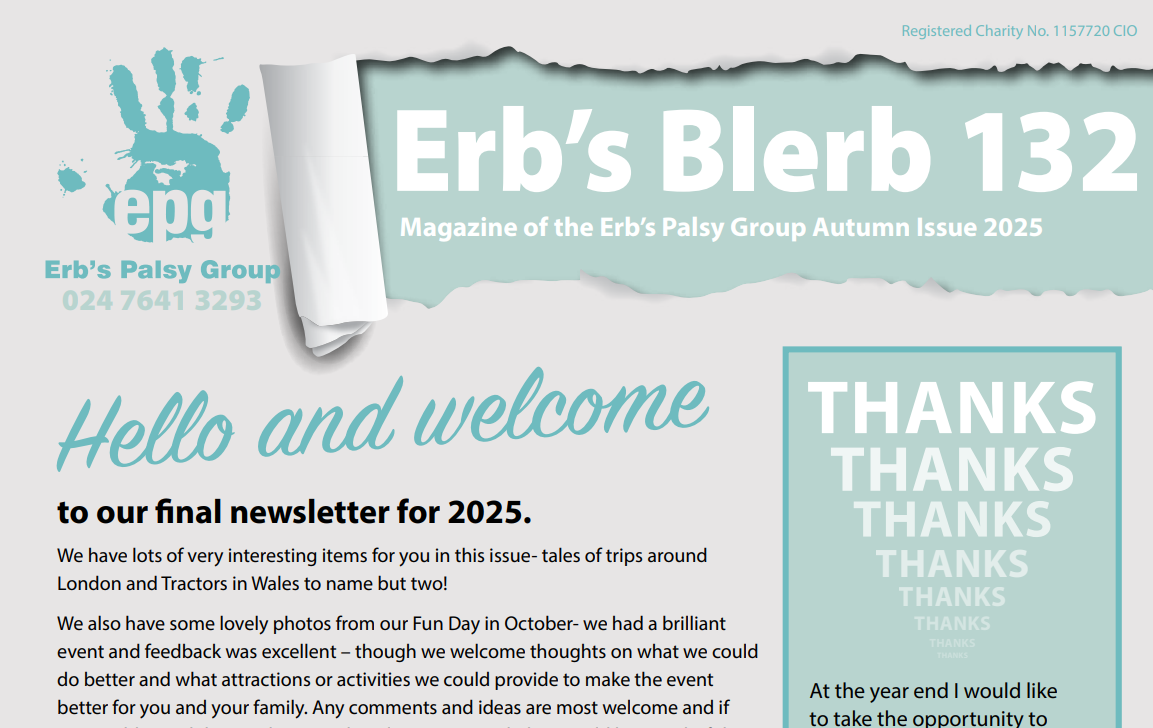Walking Hand in Hand for the Erb's Palsy Group
Erb's Palsy Group Members Participated recently in a 500 mile walking challenge during Awareness Week.
A huge thank you to all of our supporters as we smashed through our target!
Samuel Dewdney has put together a wonderful montage video for the charity with photos from members who took part in the challenge.
Our Mission
Education and Awareness
We aim to raise awareness and understanding of Erb's Palsy through various initiatives, including training events for professionals and educational resources for families. Our goal is to ensure that everyone affected by Erb's Palsy has access to accurate information and supportive care.
Learn more

Fundraising Efforts
Your contributions directly support our mission, enabling us to offer vital services and resources to families. We host various fundraising events throughout the year, such as charity runs, auctions, and community gatherings, to raise funds and spread awareness. Consider making a one-time or recurring donation to help us continue providing essential care and support.
Advocacy and Community
We advocate for the needs of individuals with Erb's Palsy, promoting early intervention and appropriate treatments. Additionally, our Fun Day event brings together families to share experiences, support each other, and celebrate the achievements of those living with Erb's Palsy.
Join now.png)

Your generous donations enable us to provide essential support, education, and advocacy for families affected by Erb's Palsy. Every contribution, no matter the size, makes a significant impact.
Donate nowWhere your donations go
Your generous contributions allow us to make a real difference in the lives of those affected by Erb's Palsy. Your support helps us provide essential resources, fund educational programs, and offer comprehensive care to families in need. Together, we can:

Offering advice and guidance tailored to individual needs, ensuring that each family gets the specific assistance they require.

Connect families with top medical professionals who are experts in treating Erb's Palsy, facilitating better health outcomes.

Host annual gatherings for families to connect, share experiences, and support each other, fostering a strong sense of community.

Conducting campaigns to spread knowledge about Erb's Palsy, helping to increase public understanding and support for those affected by the condition.

Creating and distributing materials to educate families and healthcare providers about Erb's Palsy, promoting understanding and effective management of the condition.

Promoting timely treatments for better outcomes, ensuring that individuals receive the care they need as early as possible for optimal recovery.
.PNG)
Our team of dedicated volunteers is here for you. We will listen to you, support you with compassion and ensure that you receive the best possible care available!









